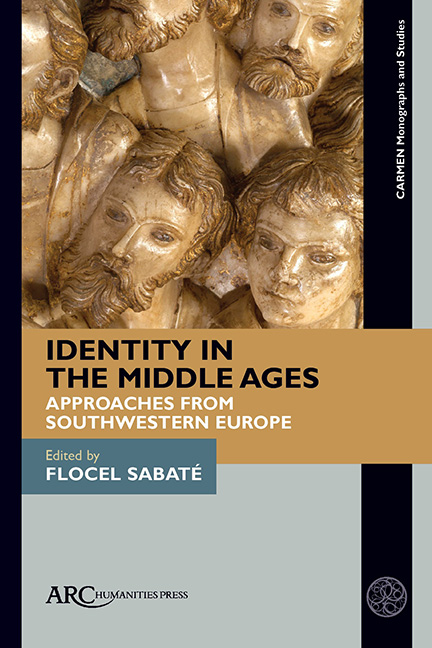Book contents
Chapter 1 - Identity as a Historiographical Concept
Published online by Cambridge University Press: 20 January 2022
Summary
THE CONCEPT OF identity, originating from the social sciences, particularly psycho-logy, and even the experimental sciences, especially psychiatry, has been imported into the historical discipline during recent decades. Therefore, any attempt to define this concept calls for insight into the origin of its creation and consolidation in the disciplinary, academic, and scholarly panorama.
In this chapter I analyze the growing importance acquired by the concept of identity in historiography. This concept has been defined as “the process of construction of meaning on the basis of a cultural attribute, or a related set of cultural attributes, that is given priority over other sources of meaning.” The historiographical concept of identity is then closely tied to that of culture, and is therefore linked to the current prevailing historiographical trend, the new cultural history. Hence, in recent decades, history has been enhanced by means of incorporating and assimilating the concept of culture, originating from symbolic anthropology, and that of identity, from psychology and psychiatry. This new conceptual marriage has replaced both the grand narratives of postwar paradigms, the most radical postmodernist positions, and the linguistic turn of the 1970s and 1980s. Historiography has ceased to be concerned with analyzing rigid social and economic structures and with the anti-referential excesses of a radical postmodernism, and is increasingly placing greater emphasis on describing, analyzing, and inter preting “the mechanisms created by an individual or social group in order to recognize themselves and be recognized by the rest of the social conglomerate.” This approach allows resolution of the trend towards fragmentation in contemporary knowledge with reasonable certainty.
Firstly, we must start from the fact that the analysis and application of the concept of identity refers to two key realities in the study of history: individuality (which in much of academic literature written in English is identified by the term “self”) and collectivity. This dual facet of the concept is important, because both individuality and collectivity bring out and emphasize each other according to the historiographical moment in time. Broadly speaking, from the 1930s to the 1970s, the historical discipline became polarized in the study of social processes, more linked to the collective, by means of the emergence of trends grouped together by Lawrence Stone under the name of “paradigms”— namely, Marxism, Structuralism, and Quantitativism—in his programmatic article on the revival of narrative in 1979.
- Type
- Chapter
- Information
- Identity in the Middle AgesApproaches from Southwestern Europe, pp. 55 - 64Publisher: Amsterdam University PressPrint publication year: 2021

